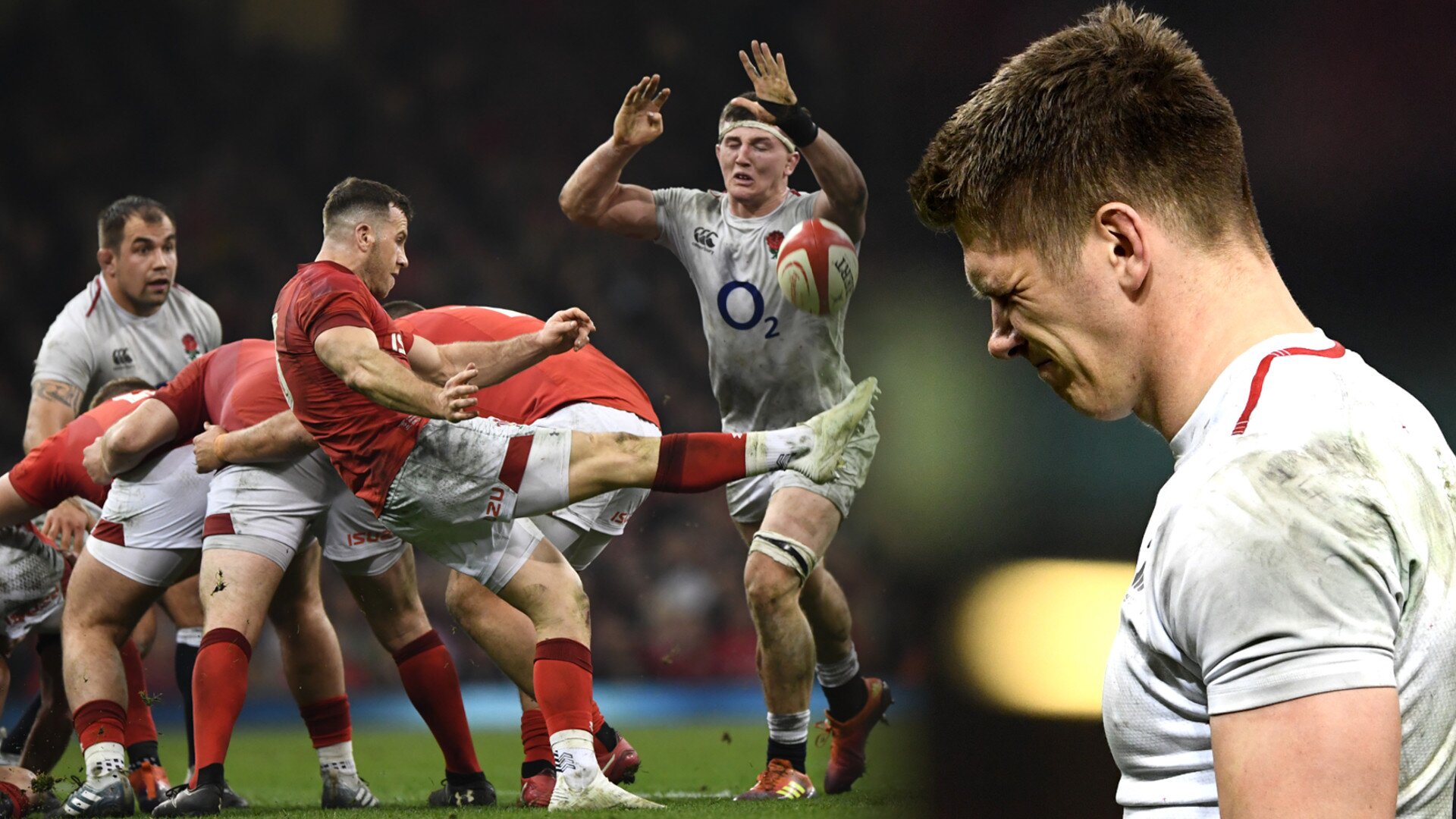England's tactical flexibility a myth or was Cardiff a one-off?

Just as it felt as if England were about to banish the demons of 2018, along they came again.
England headed to Cardiff on Saturday full of confidence from their impressive victories over Ireland and France, but it was not a confident performance that was turned out on the Principality Stadium pitch.
It’s not that the group went and lost to Wales, which is not a disheartening fact in itself given Wales’ strength at the moment, it’s that they didn’t fire their shots. It’s that they lost to a Welsh team that, in all honesty, didn’t play to their potential, either.
Part of what had made those performances against Ireland and France so impressive, was the fact that they had seemed tailormade to exposing those opponents’ weaknesses. It spoke of a tactical flexibility and cerebral game plan that boded well for England in a Rugby World Cup year.
The pinpoint kicking game exploited Ireland’s high wingers and it shredded France’s back three, who were, to put it politely, positionally naïve. Going up against Wales’ settled back three of George North, Liam Williams and Josh Adams, that surely wasn’t going to be the plan again, was it?
The excitement about the tactical ingenuity being moulded quickly dissipated, though, as England, rather relentlessly, went to the same kicking game that had previously flummoxed Ireland and France.
Where England had turned both those sides and been able to utilise the speed, work rate and aerial ability of Jonny May, Jack Nowell and Chris Ashton to harass and pressure, they were met by players positioned deep, competent in the air and able to run on to the ball and counter-attack.
Both Ben Youngs and Owen Farrell struggled to execute the plan with the same precision, in fairness, but even if they had, it was a game plan which played into the hands of Wales, and even with both May and Nowell chasing well and winning a number of aerial contests, it was still manageable for the hosts to deal with. With success against Ireland and France, England kept going back to the well in those two games, and in the struggle against Wales, England still kept going back to the well.
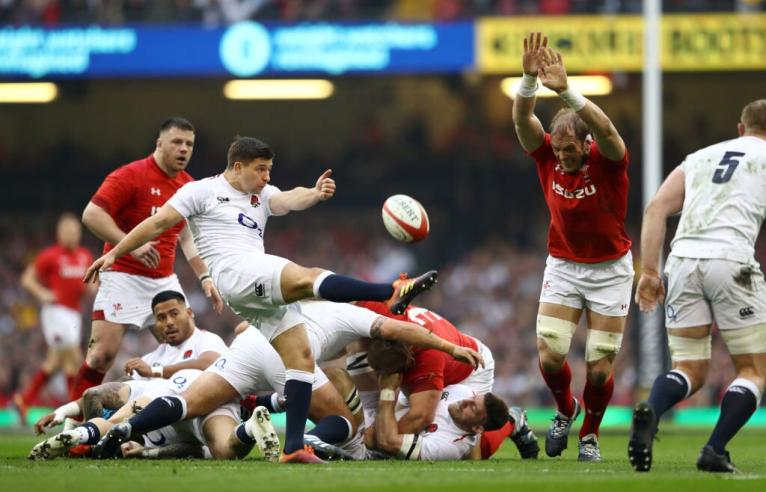
For the third match in a row, England’s centre pairing accounted for three or fewer passes in total and where that hadn’t been an issue before, it played into the hands of Wales’ ferocious defence close to the ruck and their deeper back three.
Given the composure and clinical nature with which England executed it in the previous two fixtures, you can understand wanting to try and repeat the process, despite Wales being better suited to deal with it, but what was most disheartening about the performance was the inability for England to adapt. Was it a coaching decision to stick with the tactic regardless or was it a lack of leadership on the pitch among the players, to diagnose the problems and adjust accordingly?
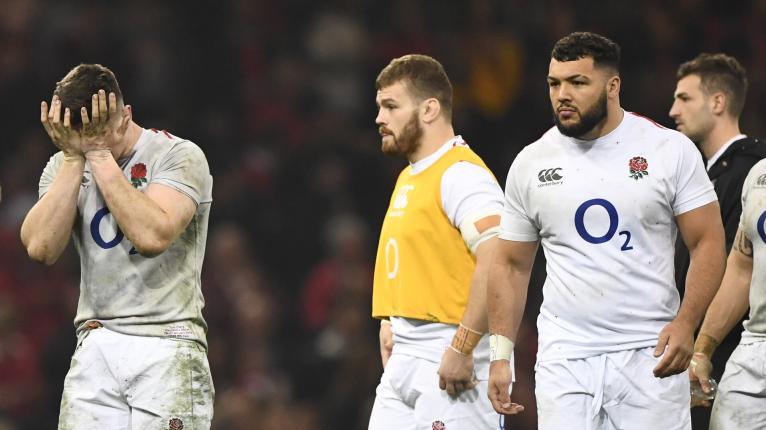
England were having success on the gain-line. Tom Curry and Billy Vunipola were both carrying effectively, England’s forwards were running on to the breakdown and delivering quick ball, but even with tempo and the numbers to go wide, England were still opting to kick. Sometimes it would come on first phase, at other times on the third or fourth phase, but regardless, it was the go-to option.
This is a wake-up call for England. The players, the coaches and even the fans, all of whom can be forgiven for getting carried away with the effectiveness of the first two games, have been shown just how much further the team needs to go to get to where they all want it to be.
Do the coaches need to give the players more freedom on the pitch to execute their own strategy based on the scenarios in the game, or do they need to put in more hours on the training pitch developing the structures for players to pull off multiple pre-planned strategies in a game? Only those in the camp will truly know the answer to that.
One critique which does, indisputably, fall at the coaching staff’s feet, though, was the unused bench.
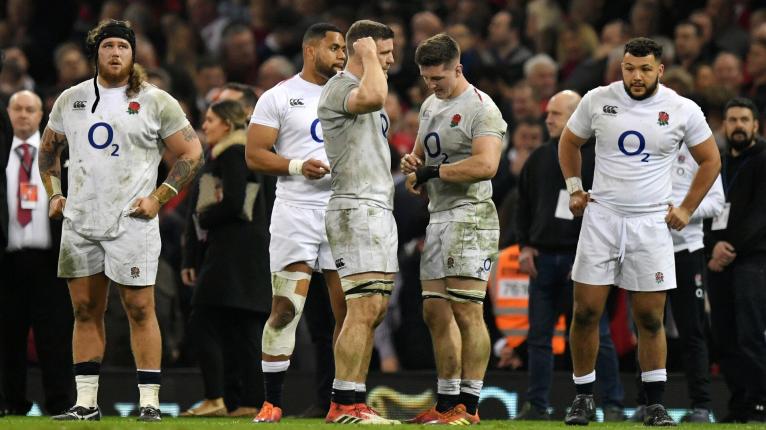
Termed “finishers” since Jones’ arrival in 2016, the group weren’t, for the most part, allowed a reasonable crack at finishing the contest. With England struggling and momentum all going Wales’ way, it seemed like the perfect time to bring on these game-changing talents.
With Youngs’ kick-heavy approach failing to expose Wales, the livewire Dan Robson went unused from the bench, whilst George Ford and Luke Cowan-Dickie similarly didn’t make it onto the pitch. The lineout was operating well, and Farrell hadn’t missed a kick, so given the closeness of the score line, those last two are understandable, but still surprising that they were deemed not capable of positively changing the match.
Two other interesting calls were the decisions to give Ellis Genge and Joe Cokanasiga just a handful of minutes each. Both players are the kind of powerful, incisive ball-carriers that could have wrested momentum back to England, had they had longer on the pitch to influence the game. Instead, it felt like England were trying to see out the game at 13-9 up, and when Adams went over for Wales with less than 10 minutes to go, it was too little too late for the visitors, who then turned to alternatives.
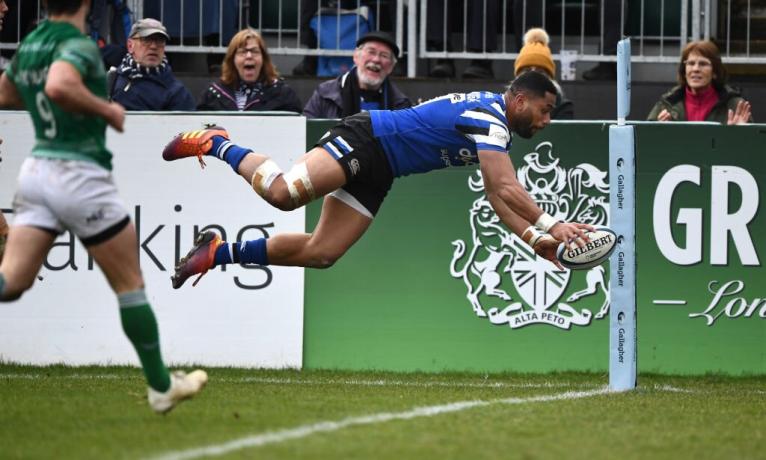
Coupled with England conceding three times as many penalties as Wales, coughing up a major possession advantage – over 2:1 in Wales’ favour in the second half, without England controlling the territorial battle in the process – and an inability to turn what breaks they had into points, or at least an extended phase that drew the Welsh defence into disarray, it all proved a bridge too far for England.
It comes at an inopportune time for Jones’ side, too, as next up on the slate is Italy.
It’s a match that has been marked on the calendar for some time now as an opportunity for the Australian to get some international minutes into the legs of the likes of Cokanasiga and Genge. If he does ring the changes, it denies this group an opportunity to show that the result and performance in Cardiff was a one off, and that they are in fact a more dynamic bunch who can execute more proficiently and adapt to adverse in-game situations. If he sticks with this group, it denies some of the players on the cusp the opportunity to impress.
It all just throws a spanner in the works of what, to this point, had been the perfect Six Nations for England. The momentum is gone, England’s ability to adapt has been exposed and the perfect scenario for the Italy game has been lost.
That said, great teams are forged in adversity and there were positives in defeat.
Curry, again, looked to the manor born in the seven jersey. He was England’s primary carrier alongside Vunipola, his mobility in defence allowed England to deny Wales width and he was forcing turnovers through both the physicality of his tackling and his ability at the contact area.
May and Nowell both did well in the aerial contests, chased hard and, like Curry, prevented Wales from hurting England in the wide channels, whilst Courtney Lawes and Kyle Sinckler were trading off on making ultra-physical, dominant tackles on some of Wales’ most effective carriers.
Defensively, England were again excellent. Aside from Adams winning the aerial contest with Elliot Daly for the pivotal score, the visitors at the Principality rarely put a foot wrong on that side of the ball.
Unfortunately for them, defence was not enough to win this one and now it’s Wales who march on towards the objective of a Grand Slam.
With home games against Italy and Scotland to come, there are, on paper, opportunities to regain momentum ahead of a busy summer preparing for the Rugby World Cup, but England need to have learnt the lessons of Cardiff if they are to kick on to the next level and realise the full potential of what they were showing in Dublin and Twickenham earlier this month.
Identifying those issues will be the first step of that learning process and it is sure to be an interesting couple of weeks in camp preparing for the visit of the Azzurri when the group reassembles in the coming days.
Watch: When Jim met Finn



























